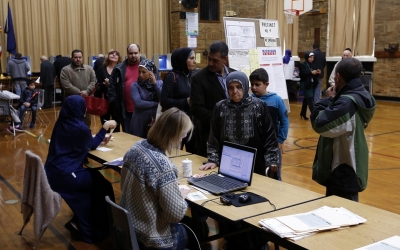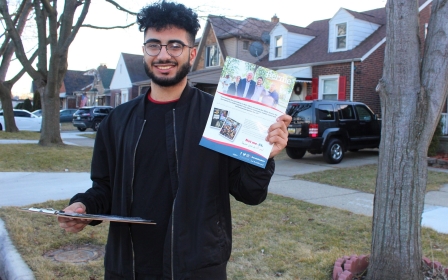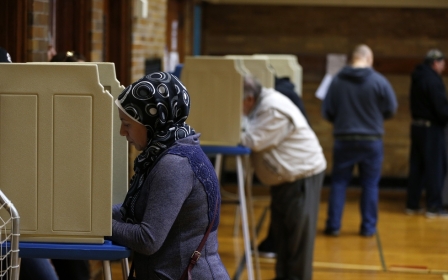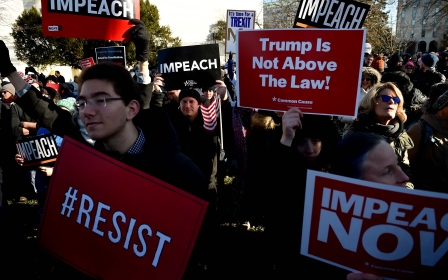Yalla Count Me In: Arab Americans urge US census participation
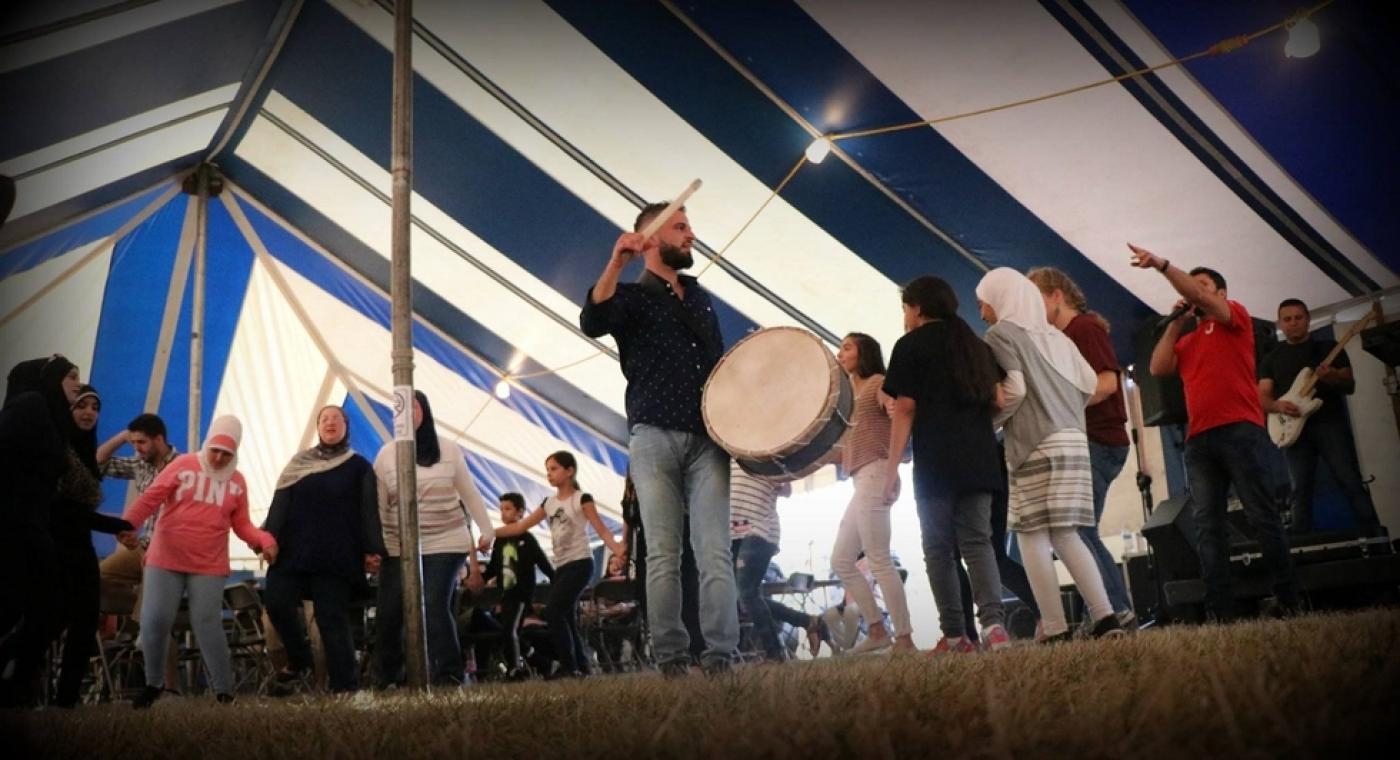
People are not just numbers, but numbers do matter, especially when it comes to dispensing resources and conducting research. That's where the US census comes in.
Being counted on the census is crucial to the well-being of the community, Arab-American advocates say.
Public health advocate and former Michigan gubernatorial candidate Abdul El-Sayed said Arab Americans' getting counted makes a "case for our existence as a community".
"The census is going to set the stage for how people think about our community, and it's absolutely critical that every single person knows how to fill it out and feels empowered to do that," Sayed told a webinar organised by the Arab American Institute (AAI) on Wednesday.
Congressional districts are drawn and some state and federal resources are allocated based on census data. Moreover, accurate numbers enable researchers to identify and address problems in certain communities.
New MEE newsletter: Jerusalem Dispatch
Sign up to get the latest insights and analysis on Israel-Palestine, alongside Turkey Unpacked and other MEE newsletters
The census, which is fully conducted every 10 years, maps out the US population and details its demographic features.
AAI, a DC-based advocacy group, has been promoting census participation through its "Yalla Count Me In" campaign.
The organisation's executive director Maya Berry said the coronavirus crisis highlights the urgent need to be counted in order to advance and improve community health.
"The conditions that we're seeing right now in response to Covid-19 are another indication of why it's so incredibly important that we have infrastructure in place for local communities that can help them," she told MEE.
For Arab Americans particularly, filling out the census form can help advocacy groups efficiently push for civic engagement and lobby for resources for the community, Berry added.
No MENA box
A renewed, decades-long effort to add a Middle East and North Africa (MENA) category to the race question came to a disappointing end in 2018 when the Trump administration rejected the new box.
The Office of Management and Budget had tested the new demographics category, and found that people who identify with the region would embrace it.
"A separate 'Middle Eastern or North African' response category can produce high quality data," then-Census Bureau director John Thompson said in 2017.
'I've never been treated like a white person my whole life. I don't want to be treated like one when people are counting my data'
-Abdul El-Sayed, former Michigan gubernatorial candidate
The rejection of the new box along with attempts to include a citizenship question on the survey sparked accusations that President Donald Trump was attempting to politicise the census.
"It's definitely political," Hassan Jaber, a longtime advocate for including Arabs on the census, told MEE after the decision was made to abandon the MENA box in 2018.
"It's tied to this whole toxic environment of anti-immigrant sentiments and race issues."
Jaber, the executive director of ACCESS, a Dearborn, Michigan-based Arab-American organisation, said at the time that the administration simply disregarded the scientific evidence and the overwhelming support from the community in its decision.
Speaking to MEE on Wednesday, Berry said the Census Bureau had concluded - after testing the question - that a MENA box would lead to more accurate counting of the Arab community, which has been suffering from a "chronic undercount problem".
But the Trump administration had other ideas.
"This happened at the same time, but this administration was moving forward with efforts to add a citizenship question which had not been tested," Berry said.
"It became quite clear that the conversation about America becoming a 'majority-minority' country and the politicisation of the census was occurring; and regrettably the MENA category fell victim to that."
Trump pushed hard to include a question on whether the respondent is a citizen on the census, which experts had said would lead to the undercounting of millions of people who may not want to disclose their immigration status to the government. The effort was eventually halted by the courts.
Sayed said adequate census participation this year would empower efforts to add a MENA category in 2030.
"For some reason or another, we're still considered white people. And I've never been treated like a white person my whole life. I don't want to be treated like one when people are counting my data," he said.
"We need to show up for this census because part of the argument that we're going to have to make again in 2030 is: 'Look how many folks are going uncounted who we can't explicitly identify simply because there is no category'."
How to answer the race question
In the absence of a category for Middle Easterners on the form, Berry is urging Arab Americans to check any race they choose, then write down their country of origin in the box below.
The Census Bureau considers people from the Middle East and North Africa to be white.
The "White" box on the census form even has "Lebanese" and "Egyptian" as examples of sub-categories.
But Arab respondents do not have to identify as white.
"Check the race that you identify with," Berry said. "A reminder: race is a social construct. Whatever you find comfortable, check away."
Options include Black or African American, Asian and "some other race". But advocates are stressing that it is crucial for respondents to write down their national origin in the space below the race box. People can include more than one description, and the more specific, the better.
For example, an Arab-American respondent with a Syrian mother and a Moroccan father can write: "Syrian, Moroccan, Arab".
"You can check in white; you can check in black; you can check in some other races, feel free to do whichever one you identify with," Berry said.
"The key for us and for all of the important data-gathering points is that after you check in one of the boxes, please write in your national origin or ethnicity."
Promoting the census during pandemic
With the spread of the coronavirus, activists have taken to cyberspace to promote census participation.
Wednesday was Census Day. Advocates took to social media to highlight why it is vital to fill out the census.
Palestinian-American comedian Amer Zahr, who had produced a feature documentary about Arab Americans and the census titled "We are not White", posted a video encouraging community members to fill out the survey.
"Why is it important to be counted?" Zahr asks before answering his own question. "So we can know exactly how many we are and where we are, so we can have more political power, and most importantly, so we can get recognised as part of the American fabric that we contribute so greatly to every day."
The Yalla Count Me In campaign on Twitter posted a video of several Arab-American activists and officials talking about the census, opening with Congresswoman Rashida Tlaib introducing herself as a "proud Arab American".
Although 1 April is celebrated as Census Day, it is not the deadline for filling out the survey. The census is in its first stage, where people are asked to voluntarily fill out the form.
Households have been getting letters in the mail with a unique pin for their address to fill out the questionnaire online - a task that takes about five minutes. Digitally, it is available in 12 languages, including Arabic.
People can also respond to the census by phone. Paper forms will be sent out later as well.
On 27 May, census takers will start knocking on the doors to interview the residents of households that have not filled out the survey. But that stage is in jeopardy because of the ongoing pandemic.
Berry said Covid-19 also made life difficult for the Yalla Count Me In campaign. AAI has been working with local partners across the country that target Arab Americans at large gatherings, including conferences, festivals and houses of worship, to encourage them to fill the survey.
Still, advocates are not letting up; they're switching to a digital strategy.
"We are going to be running phone banks. We are going to continue the significant work that's happening around both social media as well as email content," Berry told MEE.
"We are running ads on Facebook, we are running ads on Twitter, we are running ads on Arabic language channels. We are running ads on the radio. If you're watching an Arabic movie on YouTube, you're probably going to see one of our ads."
Middle East Eye delivers independent and unrivalled coverage and analysis of the Middle East, North Africa and beyond. To learn more about republishing this content and the associated fees, please fill out this form. More about MEE can be found here.



